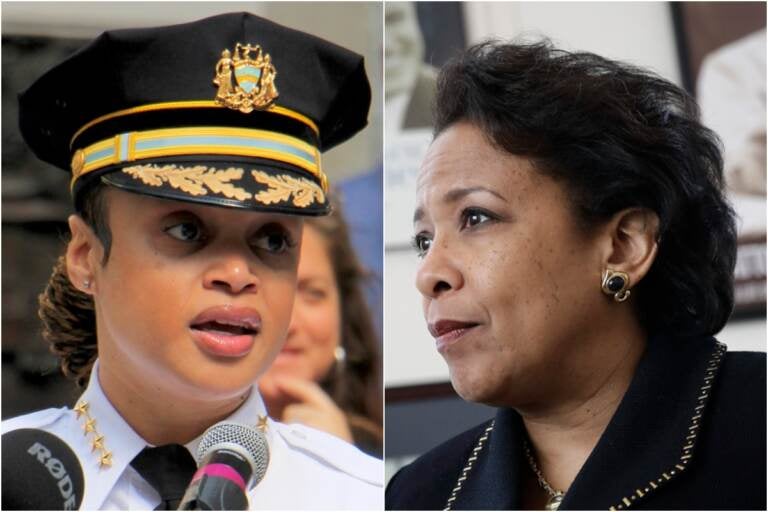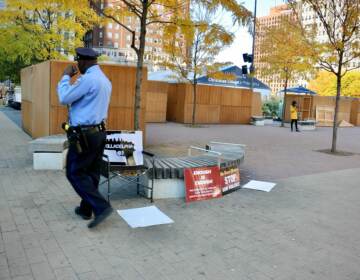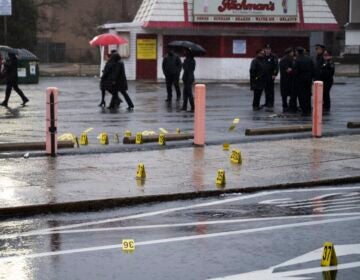A pair of firsts: Philly police commissioner Danielle Outlaw joins Obama-era AG Loretta Lynch in virtual chat
The hour-long chat marked the end of Women’s History Month.

Philadelphia Police Commissioner Danielle Outlaw and former U.S. Attorney General Loretta Lynch. (Emma Lee/WHYY and Patrick Semansky/AP Photo)
Former U.S. Attorney General Loretta Lynch joined Philadelphia’s police commissioner for a virtual chat on Thursday to mark the last day of Women’s History Month.
Lynch and Commissioner Danielle Outlaw discussed the challenges that come with serving as the first Black women in high-power law enforcement positions. Lynch was the first Black woman to serve as the nation’s top prosecutor, and Outlaw is the first to lead Philly’s police department.
“Often women are placed in positions of power at the most difficult times,” Lynch said. “You look around and you say, ‘Well, there must be something broke that needs fixing because here I am, right?’”
Lynch led the Department of Justice during the last years of the Obama administration. Outlaw became Commissioner in 2020, less than a month before the coronavirus pandemic struck Pennsylvania and at a time when the police department was embroiled in a series of scandals. Before moving to Philadelphia, she was the first Black woman to serve as chief of police in Portland, Oregon.
The two discussed the expectations they felt, as firsts, to “choose sides” in their law enforcement work.
Lynch recalled friends questioning her role as a prosecutor, and only expressing pride when she helped prosecute NYPD officers who brutally assaulted Haitian immigrant Abner Louima in 1997.
Outlaw described making decisions that she believed were right, but “appeared as though I was turning my back against my own.” In reality, she said, “I wear many hats and identify with many groups. I don’t have to choose.”
They also discussed the growing call for police reform and accountability, and the challenges of working in communities that have been harmed by or mistrust law enforcement.
“I think it’s incumbent upon law enforcement sometimes to step a little bit out of themselves,” Lynch said. While still acknowledging the difficulty and trauma that come with their jobs, they should also recognize that “the trauma of the communities that are expressing really some very negative sentiments is just as deep.”
Ultimately, Lynch said, landing in the “leadership chair” can be lonely and challenging, but she believes women bring important knowledge to positions of power and know how to “drive progress.”
She said that many women’s experiences — being underestimated, doing a lot of behind-the-scenes work — can serve them well.
“Somebody who knows what it’s like not to be heard, frankly, is usually better able to bring other people out and bring those voices out,” Lynch said.
WHYY is your source for fact-based, in-depth journalism and information. As a nonprofit organization, we rely on financial support from readers like you. Please give today.








